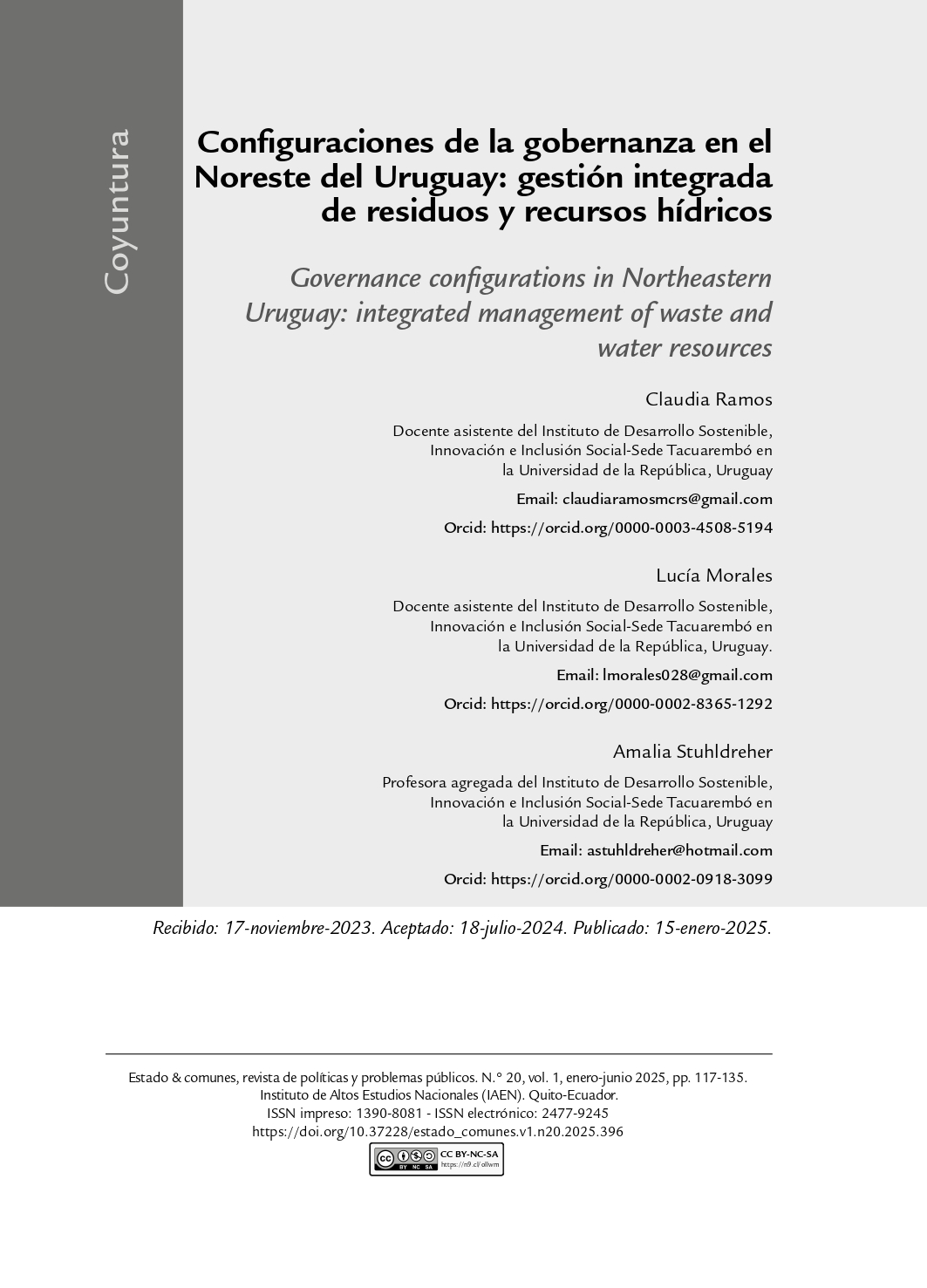Governance configurations in Northeastern Uruguay: integrated management of waste and water resources
Main Article Content
Abstract
Using the multilevel and multi-stakeholder governance approach, this article investigates the effective promotion of sustainable development in the Northeast of Uruguay in the departments of Tacuarembó, Rivera and Cerro Largo. This development is approached from the perspective of integrated water resources management (IWRM) and waste management (WRM), through a case study that includes participant observation and interviews with key actors within the territory. Although the three departments share a territorial and human development backlog, what really differentiates them are the weaknesses and tensions to generate agreements and resolutions, as well as the different levels of multi-stakeholder articulation with regulations, plans, public policies and the respective instances. The conclusions warn that these internal dynamics affect the response capacity and decision making of the three departments with a view to IWRM and WRM.
Downloads
Article Details
How to Cite
Issue
License
Copyright (c) 2025 Claudia Ramos, Lucía Morales, Amalia Stuhldreher
CC BY-NC-SA. This license allows sharing, copying, distributing, performing, and publicly communicating the work, as well as creating derivative works.
Author Biographies
Claudia Ramos (Universidad de la República de Uruguay )
Docente asistente del Instituto de Desarrollo Sostenible, Innovación e Inclusión Social-Sede Tacuarembó
Lucía Morales (Universidad de la República de Uruguay )
Docente asistente del Instituto de Desarrollo Sostenible, Innovación e Inclusión Social-Sede Tacuarembó
Amalia Stuhldreher (Universidad de la República de Uruguay )
Profesora agregada del Instituto de Desarrollo Sostenible, Innovación e Inclusión Social-Sede Tacuarembó











